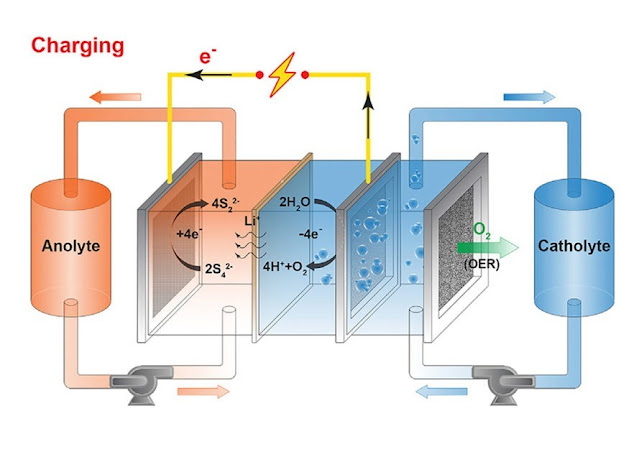Key Takeaways
Key players operating in the global autoimmune polyglandular syndrome type 1
market are Pfizer Inc., GlaxoSmithKline plc, Novartis AG, Mylan N.V., Teva
Pharmaceutical Industries Ltd., Sanofi, F. Hoffmann-La Roche Ltd., Zydus Cadila,
Lupin, Amneal Pharmaceuticals LLC., Cipla Inc., Aurobindo Pharma, Glenmark
Pharmaceuticals Limited, Eli Lilly and Company, Sun Pharmaceutical Industries
Ltd., Allergan, Bristol-Myers Squibb Company, Takeda Pharmaceutical Company
Limited, Abbott, and LEO Pharma A/S. These players are focused on expanding
their product portfolio by developing new drug formulations and delivery
systems for improved treatment of APS type 1.
The
Autoimmune
Polyglandular Syndrome Type 1Market Size is primarily driven by the increasing
prevalence of the condition owing to improved disease diagnosis. According to
recent estimates, the prevalence of APS type 1 is approximately 1 in 25,000
individuals of European descent. Increasing awareness about early diagnosis and
treatment of the condition is also boosting the demand for management therapies
in the market.
Technological advancements in drug delivery systems and development of novel
treatment approaches are expected to provide lucrative opportunities for
players in the market. Researchers are investigating mechanisms of abnormal
immune response in APS type 1 to develop targeted immunomodulators and
therapies for modulating specific defects in the immune system. Combination
therapies using immunotherapies along with hormone replacement are also being
evaluated for better management of the condition.
Market Trends
- Growing focus on orphan drugs: Many product candidates in pipeline targeting
APS type 1 have been granted orphan drug designations due to the rare disease
status of the condition. This is encouraging larger investments by companies
for drug development.
- Combination therapies gaining traction: Using combinations of targeted immune
modulation along with hormone replacement is emerging as a promising treatment
approach. Several clinical trials are evaluating safety and efficacy of
combined regimens.
Market Opportunities
- Steady product approval: The FDA and EMA approval of rare disease drugs in
recent past has boosted confidence among market players. This will increase
R&D investments.
- Use of novel drug delivery systems: Nanotechnology and advances in controlled
release systems provide opportunities for improving delivery of existing
immunomodulators and hormones for better management of APS type 1 symptoms.
Impact of COVID-19 on Global Autoimmune Polyglandular Syndrome Type 1 Market
Growth
The outbreak of COVID-19 pandemic has significantly impacted the growth of
global autoimmune polyglandular syndrome type 1 market. During the initial
months of pandemic, restrictions on travel, lockdowns and hospital shutdowns
for non-emergency procedures impacted the treatment and diagnosis of the
disease. There was delay in routine check-ups and screening services for
autoimmune polyglandular syndrome type 1 patients. The supply chain disruptions
associated with restrictions on transportation also affected the availability
of drugs and hormonal replacement therapies for patients. In the post-COVID
scenario, the major priority is restoring disrupted healthcare services and
improving access to treatment. Telemedicine and online consultations are being
promoted to continue serving patients without risking exposure. Research
efforts to understand disease progression and advance treatment options are
also continuing with necessary safety protocols. Long term remote monitoring
solutions are being developed to effectively manage chronic conditions from home.
Overall, while the pandemic affected short term growth, the focus is now on
ensuring continuity of care and taking a more patient-centric approach to
revive growth in the long run.
Geographical Regions with High Concentration in Global Autoimmune Polyglandular
Syndrome Type 1 Market
Europe accounts for the major share in global autoimmune polyglandular syndrome
type 1 market in terms of value. This is attributed to high prevalence of
disease, advanced healthcare infrastructure and robust research funding towards
developing novel treatment approaches. Countries like Germany, United Kingdom
and France contributes significantly to the regional market. North America also
captures a sizable revenue share due to growing patient awareness levels,
availability of advanced diagnostic technologies and widespread health
insurance coverage for rare disease management. Rising medical expenditures on
specialty care and existence of global pharmaceutical companies drives the
market growth. On the other hand, Asia Pacific region is expected to register
fastest growth during the forecast period owing to growing geriatric
population, improving accessibility and rising economic abilities. Strategic
initiatives by governments towards rare disease policymaking further supports
market expansion.
Fastest Growing Region in Global Autoimmune Polyglandular Syndrome Type 1
Market
Asia Pacific region is anticipated to register fastest growth in the global
autoimmune polyglandular syndrome type 1 market during the forecast period.
This is majorly due to rising patient pool, increasing healthcare spending,
improving public awareness regarding early diagnosis and treatment, and
favorable government initiatives. Presence of emerging economies like India,
China and South Korea with growing disposable income levels offer immense
opportunities. Significant investments by key players for infrastructure
development, capacity expansion projects and research collaborations with
regional institutes further boost market landscape in Asia Pacific. Moreover,
with medical tourism gaining popularity, large patient inflow from other
regions supplements the regional market growth. Overall, rapid urbanization,
rising standards of living along with growing emphasis on complex disease
management are some of the key factors driving Asia Pacific region to be the
fastest growing market for autoimmune polyglandular syndrome type 1 globally.




Comments
Post a Comment